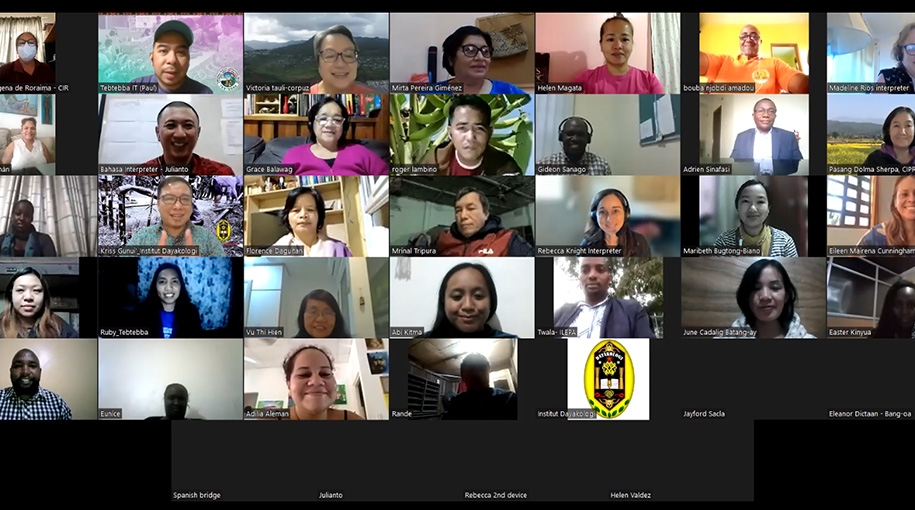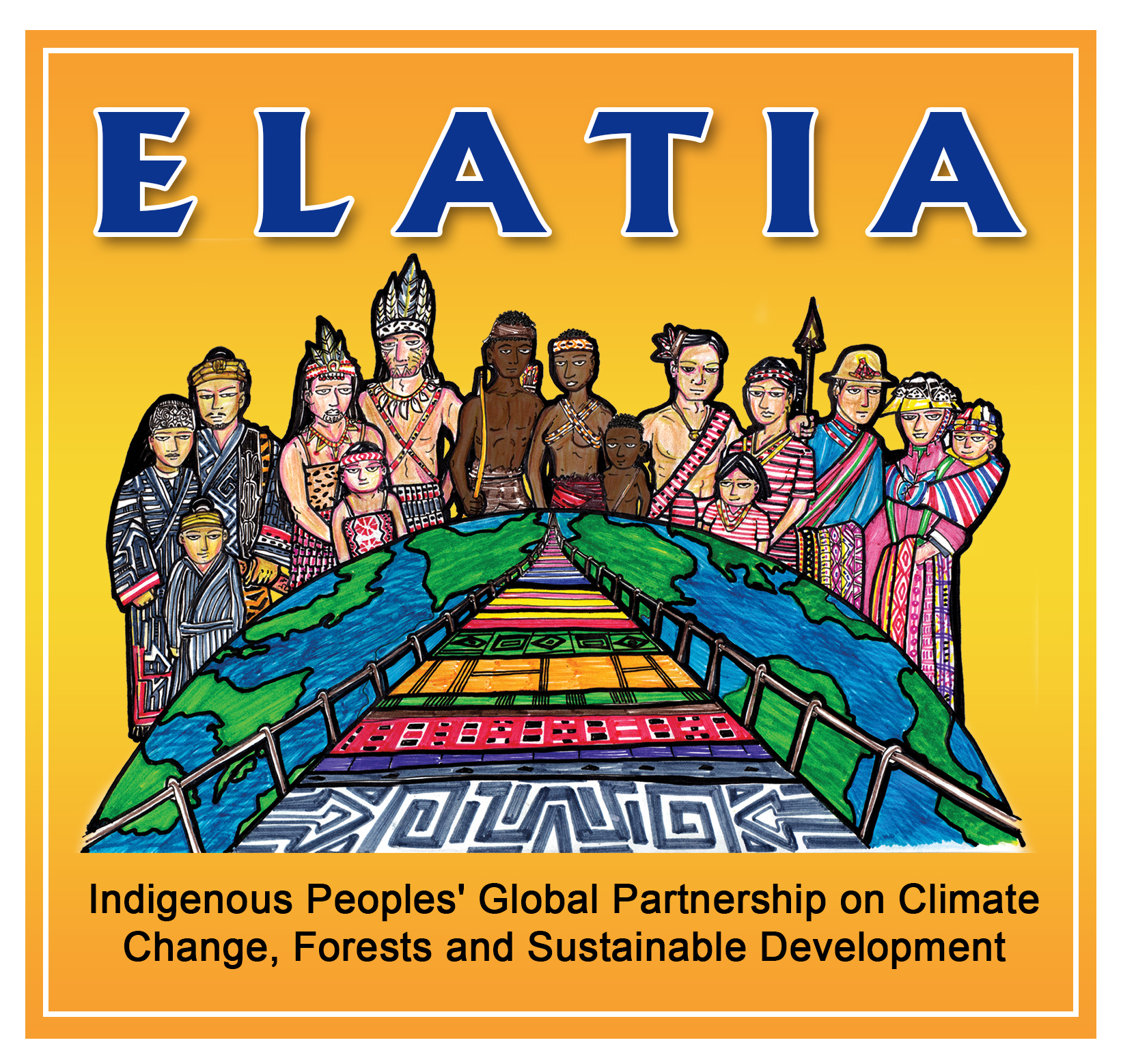“We are still experiencing stagnancy in the efforts to pursue recognition of our indigenous rights, although documents calling for this have been already submitted to the government.”
Krissusandi Gunui of Institut Dayakologi in Indonesia presented the current situation of indigenous peoples in their area, including the “systematic deforestation in their area” with indigenous lands fast-becoming oil palm plantations while palm oil prices continuing to increase. He also highlighted ID’s different achievements and challenges encountered in 2021 as well as their organization’s plans this 2022 during the two-day start-of-the-year meeting of Elatia partners virtually facilitated by Tebtebba and the Elatia Indigenous Training Institute on 31 January and 7 February 2022 with support from Brot fur die Welt.
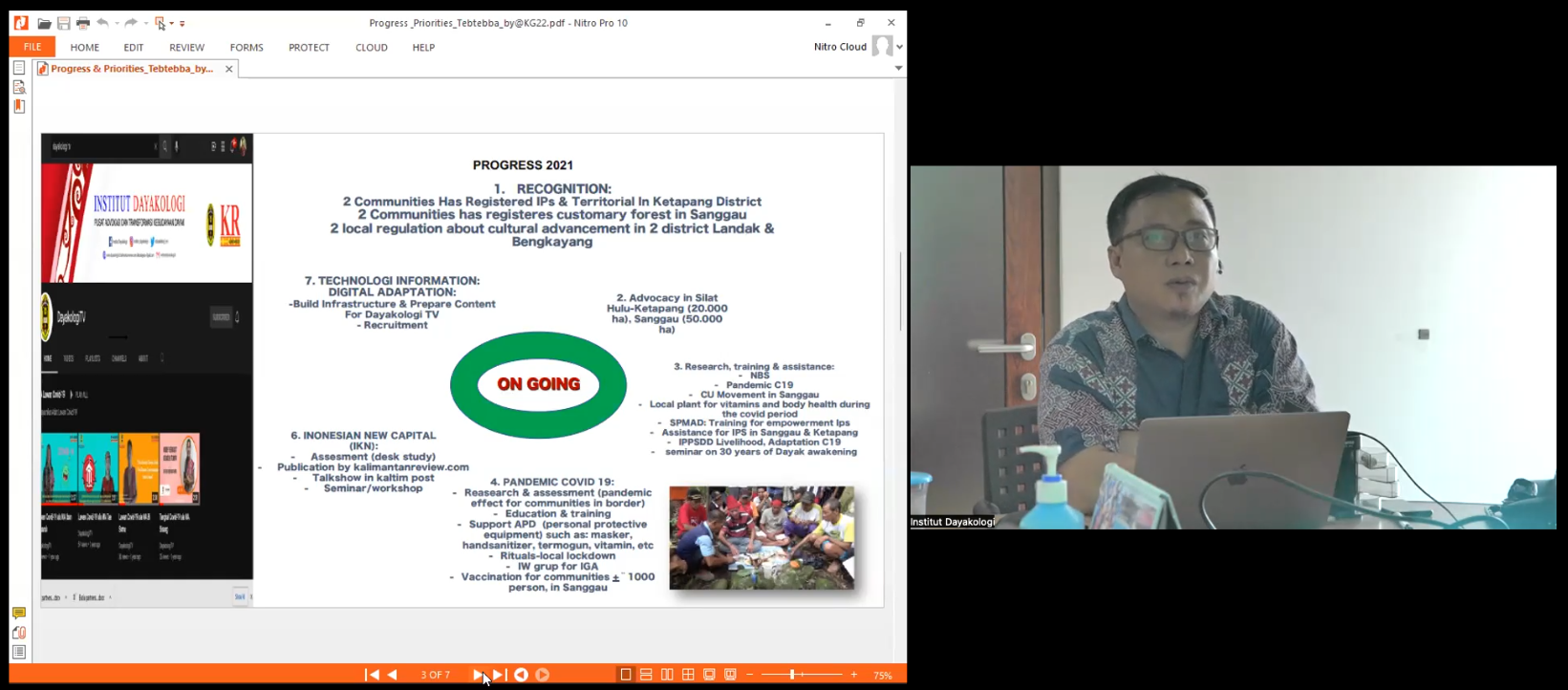
Krissusandi Gunui, ID
Despite the insurmountable challenges experienced last year, however, the partners also enumerated their various achievements in relation to the continuous fight for the recognition, respect, and promotion of indigenous peoples’ rights. Joseph Ole Simel of Mainyoito Pastoralists Integrated Development Organization (MPIDO) in Kenya cited one victory. “Together with the Food and Agriculture Organization (FAO) and the County Government of Kajiado’s Ministry of Land and Resources, we were able to find a cheaper and more efficient way for indigenous peoples to solve disputes regarding land and natural resources without necessarily engaging costly and complex lawyers (to represent us in court),” he pointed out. “[The use of] the Alternative Justice System, recognized by the Kenyan Constitution and traditionally used by indigenous peoples was agreed upon and adopted,” he shared.
Most of the partners shared on the current difficulties encountered by their communities due to the present COVID-19 pandemic. “There has been extreme drought and occurrence of forest fires, as well,” shared Mirtha Pereira Giménez of the Federación por la Autodeterminación de los Pueblos Indígenas (FAPI), adding that indigenous peoples have died due to the disease during the height of its onslaught last year in Brazil. “The country is also experiencing a second wave of COVID at the moment,” she said.
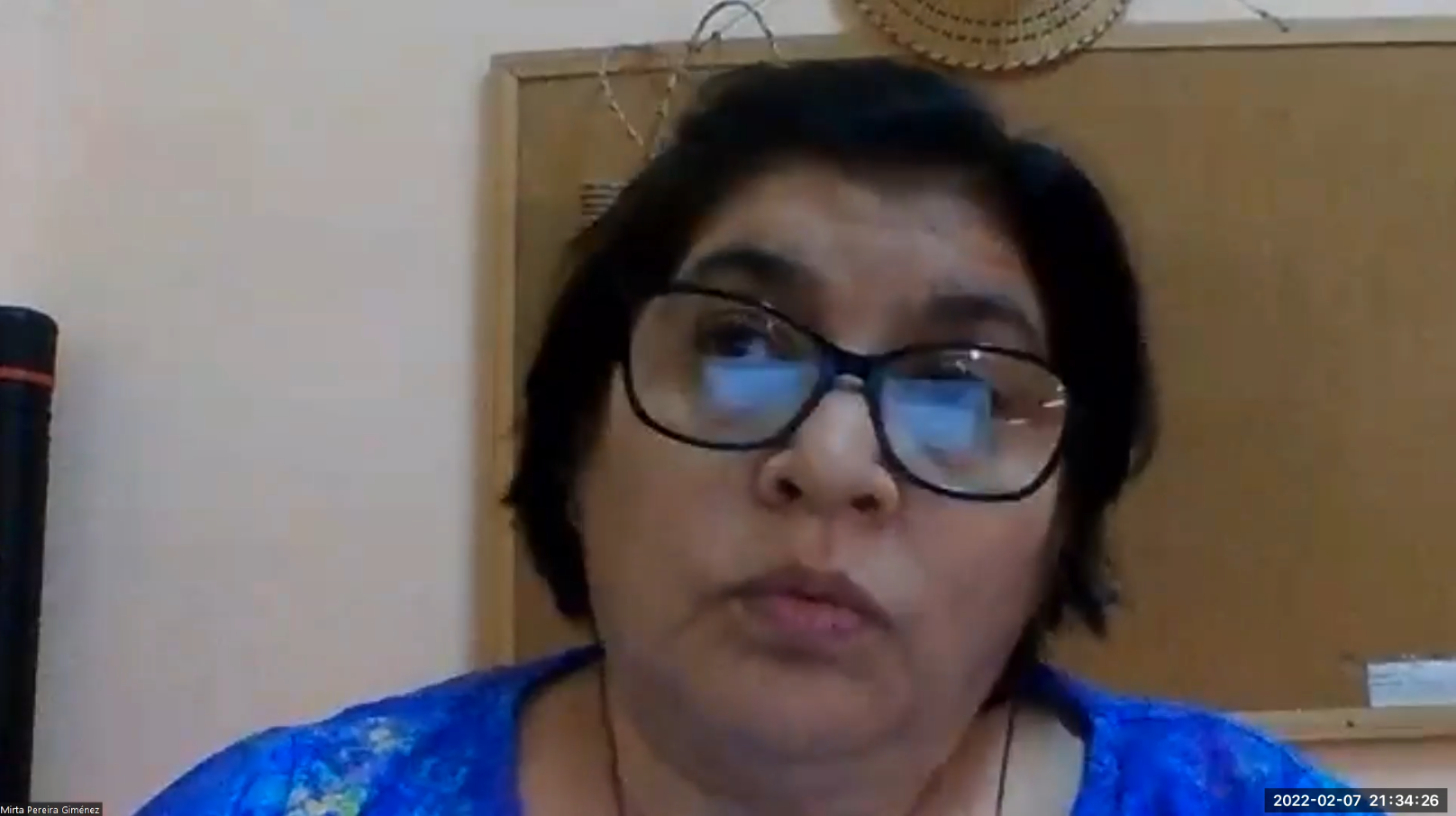
Mirtha Pereira Giménez, FAPI
“Around 70% of Baka people are internally displaced people (IDPs) because of the pandemic and (ongoing) conflicts in Cameroon,” Bouba Njobdi of Lelewal Foundation reported. “We supported those who were trapped in the conflict area,” he asserted, mentioning that their organization focused efforts on calling for strengthened IDP, human, and indigenous peoples’ rights as well as the provision of capacity-building activities including those related to (a) livelihood through heightened promotion of local products and (b) tailoring workshops including the purveyance of sewing machines and tailoring materials.
Kimaren Ole Riamit of the Indigenous Leaders Enhancement Partners (ILEPA) in Kenya echoed a similar situation in their communities as he narrated that “teenage pregnancies, school drop-outs, and land rights violations are still rampant and consistent problems” in Kenya, which became more prevalent due to the limitations caused by the pandemic.
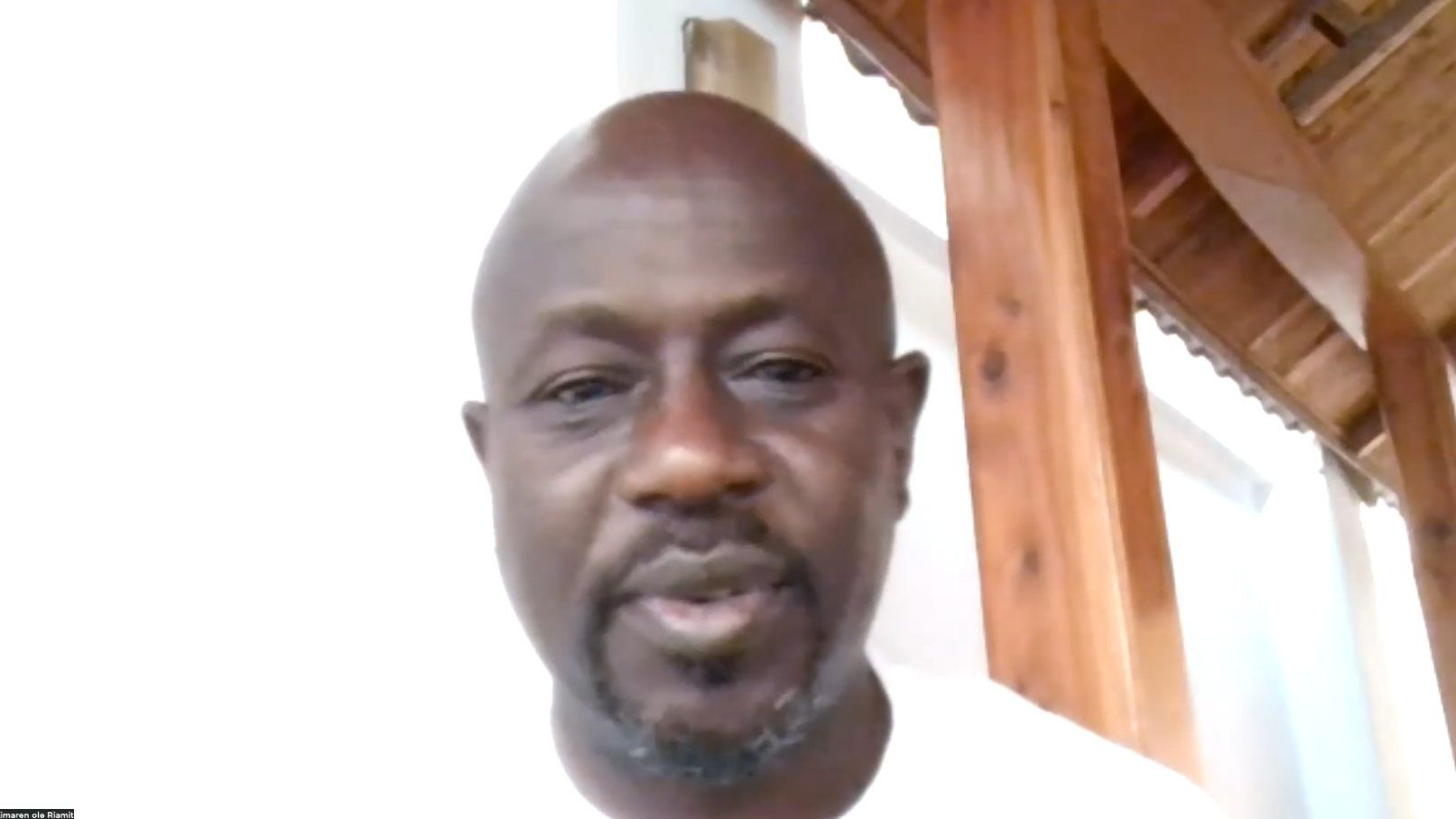
Kimaren Ole Riamit, ILEPA
Nevertheless, many partners expressed their hopeful outlook for this 2022 as they stated the numerous plans that they have in their respective organizations. Gideon Sanago of PINGO’s Forum in Tanzania, for instance, reflected the plans of other Elatia partners as he enumerated their organization’s goals for this year which included further localizing the Indigenous Peoples’ Sustainable Self-Determined Development (IPSSDD) Framework in their communities, participating in various local, national, and global processes, and providing support to different civil society organizations (CSOs) and indigenous peoples organizations (IPOs) in the country, among others.
Preity Gurung of the Center for Indigenous Peoples’ Research and Development (CIPRED) in Nepal emphasized the need to sustain the promotion and protection of indigenous practices, land tenure rights, and community forestry activities, among others. Pasang Dolma Sherpa of CIPRED added that increasing the efforts toward better collation of disaggregated data on indigenous peoples is vital in support of “our call for the inclusion of traditional knowledge in the creation of policies.”
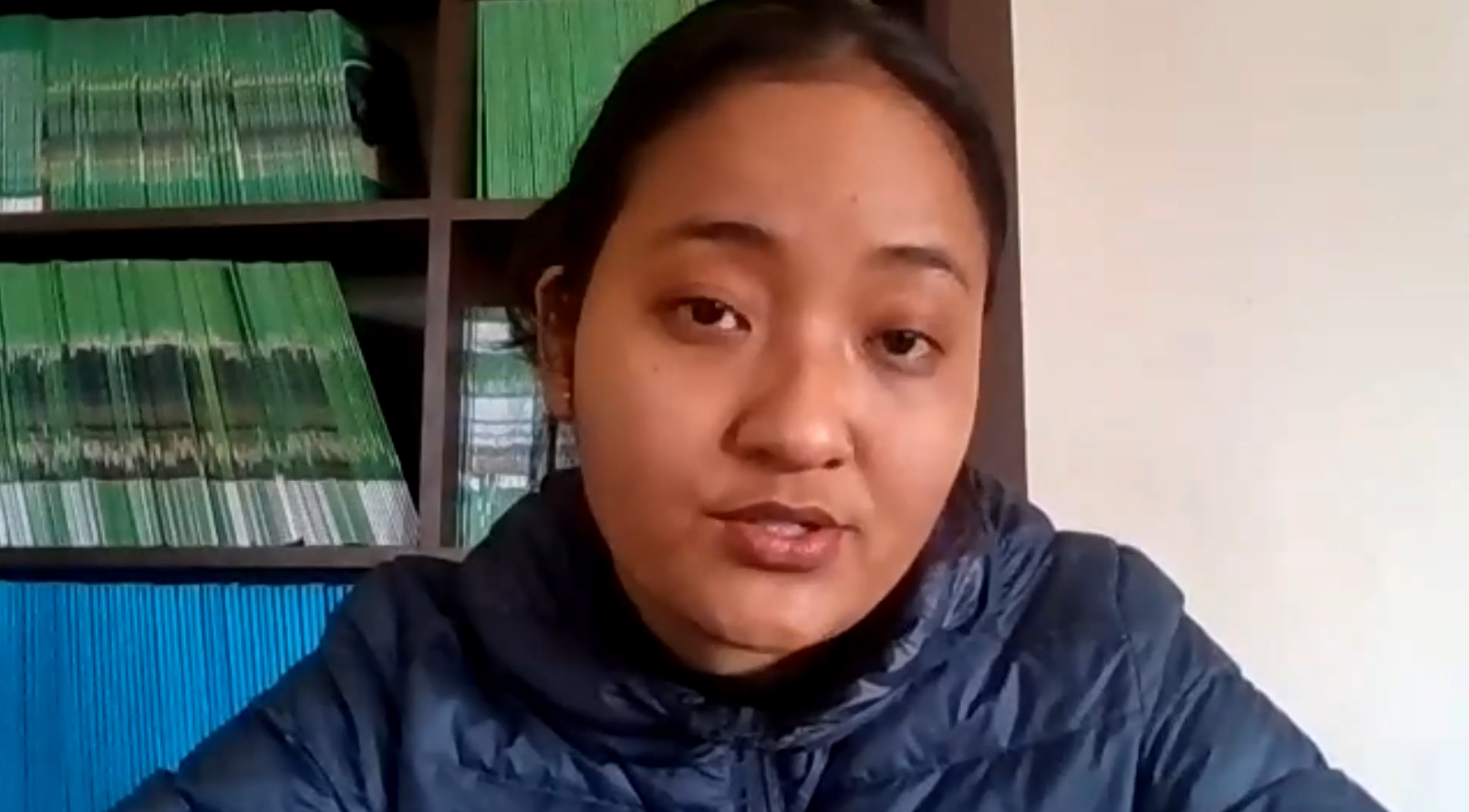
Preity Gurung, CIPRED
Elatia, a Maasai term that means “neighborhood,” is a network of indigenous peoples organizations all over the world, established in 2008, working towards promotion, recognition and fulfillment of indigenous rights through meaningful and active participation in all the different political arenas, levels, processes, and platforms.


